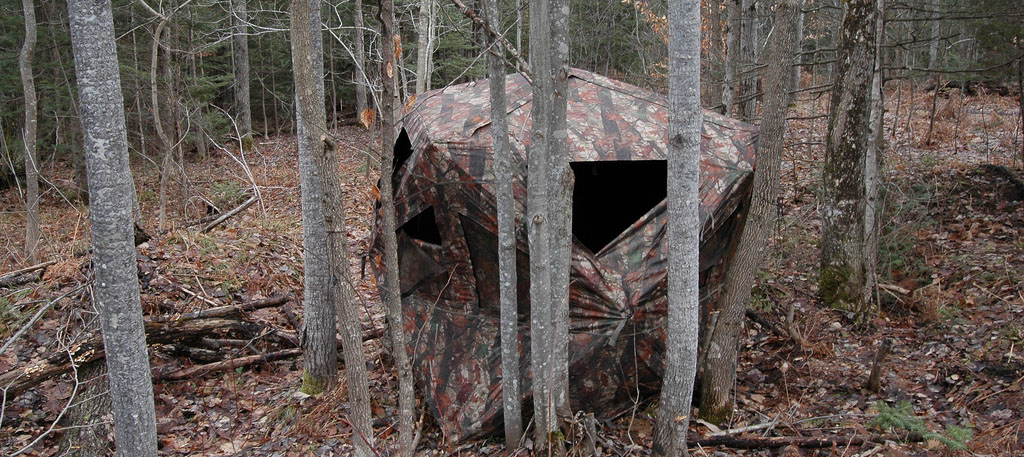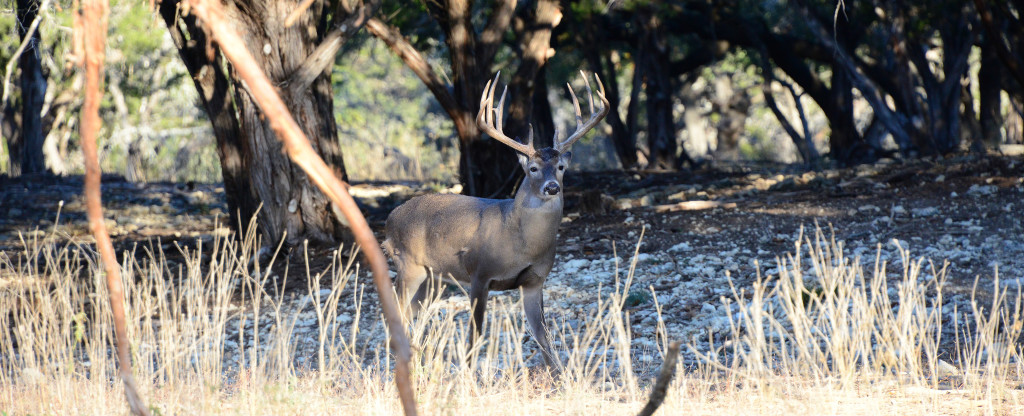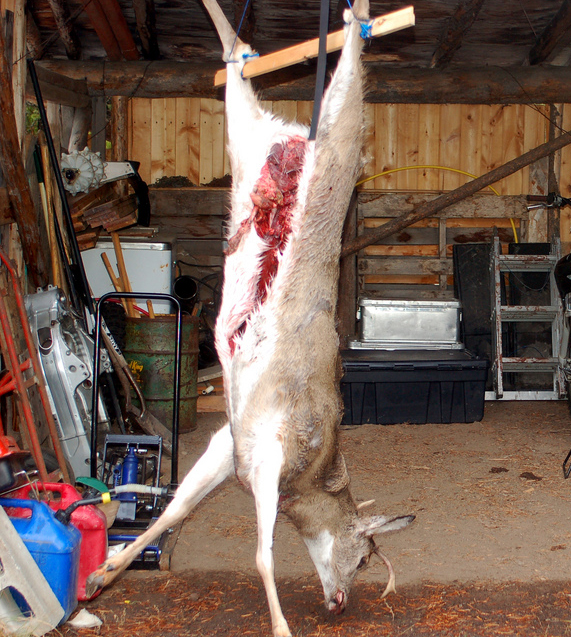
Killing an old wily tom in the spring is a tradition as old as America. Hearing a gobble in the woods signifies spring and puts a fire in the belly of any hunter who’s ever heard it. Just a few years ago there were too few birds to hunt and turkey hunting wasn’t common until the mid-90’s. Now 49 states have turkey seasons and plenty of hunters lining up vying for a bird.
To get you ready here are 26 turkey hunting tips so you can tag out and enjoy the meat and memories that come from a successful hunt.
Before the Season
1. Scout just before the season
Turkeys change their habits widely based on just a few weeks of weather. Up north especially where the change from winter to spring is quick you have to be in tune with where the birds are headed next. Scout before the season to see not only where they are now, based on sign and activity, but also keep an eye out for fields that may be plowed soon, tracts of timber ready for green up and most importantly where the birds will go when the hunters come.
2. Read the regulations
Different parts of the country have different regulations regrading what’s legal to shoot and when. Many states have bans on hunting after 1:00pm to protect hens who maybe nesting and laying eggs in the afternoon. Some states, like Florida, only have these bans in place on public land. Regulations on everything from shot size and acceptable minimum gauge requirements to the shooting of bearded hens are in place and it’ll ruin your hunt if you break one of these rules.
3. Pattern your shotgun
Patterning your shotgun is absolutely essential to your success in the field. Everyone misses a bird in their time hunting but only fools would make the chance of missing, crippling or maiming a bird even higher by not patterning their shotgun before the season. If the recoil scares you, shoot a smaller gauge. If the ammo is too expensive to pattern, shoot cheaper shells. Nothing will hurt or be more expensive than a missed bird and a bowl of tag soup.
Check out this video on patterning a turkey gun:
4. Practice with your calls
Don’t wait until the day before to polish up your slate and chalk your box calls. This is a recipe for disaster. Make sure you’re well versed in making a variety of noises with your calls. If you don’t know what it should sound like look up recordings of real turkeys online. Making a bad call is far, far worse for your hunt than making no call at all. Practice at least a month in advance just a few minutes a day and you’ll be golden.
5. Be prepared for bugs
Invest in a thermacell, soak your underwear in permethrin and use a head net. I hunt in the swamps of Florida and there’s mosquito hordes down here of biblical proportions and I’ll preach the importance of bug protection until the day they finally get me. If you’re using your deer camo for turkey hunting then shy away from bug spray with DEET in it, but if you’re using a second set of camo, go hog wild with DEET! If the bugs are particularly bad use a stool and avoid sitting on the ground. Ticks and chiggers aren’t as likely to take hold if you do this.
6. Make sure you have back-up plans
Just when a turkey has made up their mind they change it just to screw with you. Get access to several different tracts of land and be prepared for the hunt to go hay wire. If you have the option to target your best birds early on do so, if not don’t over pressure that bird. Move to a different bird and let him rest for a week or two. On public ground there’s always a risk of other hunters crashing your party so have multiple backup plans in place.
7. Be 110% safe
This should go without saying but be careful. If you live in an area with a lot of hunters don’t use gobble calls. If you have a lot of snakes in your woods use snake boots. Your family deserves you to be OK when the hunt is over. Don’t drink and hunt, use caution driving too and from your locations and be ready to pull out if the weather gets rough or other hunters are being unsafe. Accidents in the backcountry can be fatal that would otherwise be minor because of the remote locations.
Turkey Hunting Tips for Beginners
8. Patience kills birds
Be patient, you’re fighting nature by calling the tom in and he’ll be wary of the situation. If he’s going to come in, he’s going to come in on his time and you need to sit tight and be ready. It can be difficult to be patient, especially when you’re in heavy brush and you can hear him drumming and beating his wings but if you rush it with too much calling you’re going to tip him off and he’ll fly off.
If he walks in after shooting hours, you have to wait for him to leave on his own otherwise you’re going to let him know you were a fake and he’ll know for next time. If you have the discipline to make this happen you’ll preserve your hunting opportunities for the whole season.
9. Silence kills birds
Try killing a turkey with no calling. Waiting over a food plot, next to a travel corridor or even watching a flock of hens will give you a shot opportunity at a mature boss gobbler. The trick is to be in the right place at the right time. Too many people overcall especially in the early season. When Toms are tied up with hens you’re better off calling to the hens or just waiting for him to come closer on his own.
10. 10 O'Clock Toms
Don’t give up if you’re hunt isn’t over by 8:00. Many a gobbler has fallen to a love sick heart in the afternoon. If a gobbler loses his flock or it’s particularly nasty weather then gobbler will be late of the roost, late into the fields and look for hens late into the day. Keep at it until the end of legal shooting light.
11. Sit still
You have to sit still to kill turkeys. They have remarkable eye sight for movement and can spot you scratching your eye from a mile off. It is absolutely imperative to not move when turkeys may be surrounding you. They can slip in, see you move, and high tail it out in seconds without you even knowing they were there. Wear comfortable clothing, bring a chair, and use liberal bug protection to mitigate any problems you may have from moving around.
12. Evening turkey hunting tips
Hunting at night isn’t safe. If you have large amounts of time on your hands, then consider finding the roost tree and stashing a setup for tomorrow morning. The idea is to find where the birds are sleeping and where they’re headed for fly down. Get within 60 yards or so and stash your decoys, ground blind and other bulk gear that’s hard to lug through the woods. It’ll be there tomorrow morning when you slip in un-detected.
13. Use a blind

If you can’t sit still, if it’s raining, or you’re just more comfortable in a deluxe chair a ground blind is a great option. Turkeys, unlike deer, will come up to a blind that has been set up just moments before and not think anything of it. You can literally spot turkeys in a field, run 200 yards away set up a blind, and kill a turkey out of it. The key is not to move or be spotted setting it up. Some turkeys after several seasons of being exposed to blinds will be weary but the hens and jakes won’t know any different and will often bring out the boss.
14. Afternoon turkey hunting tips
Turkey hunting definitely slows down as the day drags on but there are a few things you can do to stay on the hunt:
- Walk ridge tops and listen for the sounds of birds in the distance
- Set up and cold call on the edges of known nesting areas
- Look for areas that have food water and shade. Birds will get hot and hungry in late afternoon
- If anything else, find roost trees and strut zones for the next day of hunting and set up your ground blind early
15. Turkey bow hunting tips
Hunting turkeys with a bow can be a viable way to fill your tag if you have a solid foundation in archery and turkey hunting. You have to get closer with a bow and be more selective with your shot placement. Almost any archery turkey hunting tips will revolve around being very close and very accurate with your bow because otherwise all you’ll kill is your time. Consider decoying, ground blinds and a double calling setup to get really close to birds and take an ethical shot.
16. Don't ever stalk turkeys
This is a serious safety concern, you can’t stalk turkeys regularly and expect to not be shot. Turkey hunting tactics rely on bringing the bird to you because that’s the safest and most effective way to kill turkeys.
You never 100% know if the “turkey” you’re stalking is another hunter until you’re looking at it, and if you’re wrong and it is a hunter you’ll probably be shot before you find out. Even on private land with low pressure poachers and neighboring landowners might be out hunting and shoot on accident and face full of #5 shot is not that attractive.
Early Season Turkey Hunting Tips
17. Assemble a flock
Many turkey seasons happen just after their peak breeding cycle and Toms will still have hens at their disposal. The trick to breaking his attention is to call in the hens and he’ll follow them straight into your lap. Learn to make assembly calls, kee-kee runs, and feeding wines to make them want to come in for some company. Prey upon their flocking nature and kill the gobbler who wants to wag along.
18. Be wary of gobbles
Don’t be the guy who calls to another hunter. If you hear a perfect gobble coming from the same spot for two hours, give it up because even if it is a turkey he’s not budging. Using a gobble call on public land or a densely packed hunt club can make you vulnerable to being stalked and even if you don’t get shot the other hunter will certainly scare away any birds that may come to the call. In general, be weary of gobbles.
19. Don't overlook rainy days
Rainy days can be a godsend for turkey hunters because the birds will be easy to pattern. They’re headed for the closest, biggest open field they can find. They know they need to dry out and the dripping soppy woods kills their ability to listen for danger. They’re headed for a field and you should be headed for a blind with a thermos of coffee, waiting.
20. Sound like a whole flock
Learn several different types of calls because the subtle differences make you sound like more than one turkey. This will fool the birds into thinking you’re more than a lone bird and make them want to come in even more. Do things like work a box call for yelps and cuts while making a purr and feeding whine on a mouth call. It’ll be twice as exciting for any tom thinking of joining the party.
21. Breeding pairs will make his feathers ruffled
In the early season toms will be very territorial and crazy. If you really want to set off a dominant bird set out a decoy setup of a breeding pair. This will make him think there’s a Jake trying to get in on his harem. Pair this with a fighting purr and you’ve got a pissed off bird ready for a fan mount.
Late Season Turkey Hunting Tips
22. Don't fight nature
In the late season any gobblers still in the breeding mood will certainly be in a bad mood. Most hens will have bred and be tending a nest and only birds that lost their first nest will be breeding. This is a perfect time to not fight nature and to pick a fight. When hens are scarce you can bait almost any turkey into coming in to a fighting purr. Companies make dedicated fighting purr calls but you can make the right call on any slate or box call with a little practice.
23. Pick out a lonely bird
Glass fields looking for a lonely Jake because in the late season Toms know where those Jakes are. Make a weak Jake assembly call and when he comes near hit him with a fighting purr. Any toms nearby will be there soon. This is because in the late season younger toms, and jakes are going to try and flock up with other birds but dominate boss gobblers will still be aggressive and ready for a fight. Give them what they want.

24. Bust up a flock
If it’s the last week or two of the season and you’ve got a tag it’s time to resort to some crazy stuff. Take the fall tactic of, finding a flock of turkeys and running straight towards them to break them up. You have to make sure they flee in all directions evenly scattered otherwise this won’t work. After they’ve been sufficiently scared walk 10-15 yards away and start making assembly calls, feeding wines, and kee-kee runs. Their natural inclination is to re-assemble and you’ll be waiting with a loaded gun.
25. Use your spots wisely
Don’t burn out your best spot too early. If you have an awesome piece of private ground and there's little reason for the turkeys to leave. Save it for the perfect opportunity. Look for the right weather, maybe a day off in the middle of the week when you have the woods to yourself and plenty of time to kill and really give your best area your best shot. It’s tempting to run in on opening day and muck up the area but you rarely get a second shot with turkey hunting.
26. Scout throughout the season
Remember the first tip, turkeys move drastically through the year and from early to late season you might have birds one day and none the next. Be ready for people to scare the birds off, the food sources to dry up and the hens to move to better nesting grounds. Make sure you track the birds like a hawk and you’ll have turkey breast in the freezer.
Turkey hunting is growing in popularity and is a way to get outdoors in one of the best times of the year. After you hunt turkeys for a few seasons and have experiences you’ll develop your own turkey hunting tips to pass on to new hunters.



